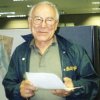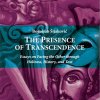One was a pilot of the invisible F-117A,
the other the missile officer that shot him down.
Their first meeting was on the radar.
Dale Zelko and Zoltan Dani decided to meet each other 12 years later.
A human story of a unique encounter.
.
Synopsis
Documentary about meeting of two protagonists American pilot Dale Zelko and Yugoslav missile officer Zoltan Dani.
In March 1999, a piece of news went around the world in a matter of seconds: the invisible aircraft F-117A was shot down.
There were two main protagonists of the event: a pilot and a missile officer who commanded the unit that shot down the former. American pilot Dale Zelko and Serbian missile officer Zoltan Dani
Format: HD, 16:9
Duration: 90, 52 and 4 x 45 min
Director/Producer: Željko Mirković
Production: Optimistic film
- DC - US Congress Library - Mary Pickford Theatre - November 8, 12.00;
- Philadelphia - November 10, 4pm;
- NYC - Film Archive Cinema - November 11, 7pm;
- NYC - NYU-Law school - November 12, 7pm;
- NYC - UN - November 14, 6pm
Dale Zelko
about “The Second Meeting”
Over 12 years ago I was speeding through Serbian airspace, when suddenly and unexpectedly I found myself walking Serbian soil. It was an extremely violent and uncomfortable close and personal “first meeting and visit” with a great Serbian warfighter, his Team, and their Country. 12 years after this first meeting I had the remarkable opportunity to have a second chance at experiencing Serbia and her people. I took the chance and will forever be deeply grateful, enriched, and blessed by it.
Leading up to my “second meeting” with the Man Who Shot Me Down, and anticipated experience visiting and sharing with his family and fellow Countrymen, I was intensely excited with restless enthusiasm and glad anticipation. I was also filled with strong anxiety and reluctance as I was uncertain how I would ultimately be received in this Country I had participated in warring against only 12 years before. After all, I had not been invited the first time and I was dropping bombs—and they were shooting missiles. Reassurance came before my recent travel to Serbia when the Man Who Shot Me Down sent word that this time I am invited and there will be no missiles!
The “second meeting” could not have been more extraordinarily wonderful in so many unexpected ways, and could not have been more natural and spontaneous. It was an indescribably beautiful experience beyond belief and imaging. It was an experience that grabbed my heart to the core and will hold it warmly and comfortably for all the rest of my days. It is a blessed journey that continues—a journey that we all are on together in this World. It is an experience and story that we want to share...
Zoltan Dani
about “The Second Meeting”
Happy is the man who has a possibility to choose. Essentially, freedom is about having a choice, i.e. having several options, or even about having a new beginning if it’s possible. The “second meeting” is exactly that – a new beginning. It is a new possibility made by righteous people. In this way we want to send a message to humanity that it is better to value all those values of life that contain messages of hope and tolerance between people, with mutual regard as much as it is possible.
The “second meeting” has taken place thanks to Mr. Željko Mirković and Mr. Dale Zelko who have understood that in this way we can give an uncommon contribution that swarms with love and understanding and has a goal to proclaim the world peace. This is exactly “the pearl of the goodness of humanity” we have always lacked.






